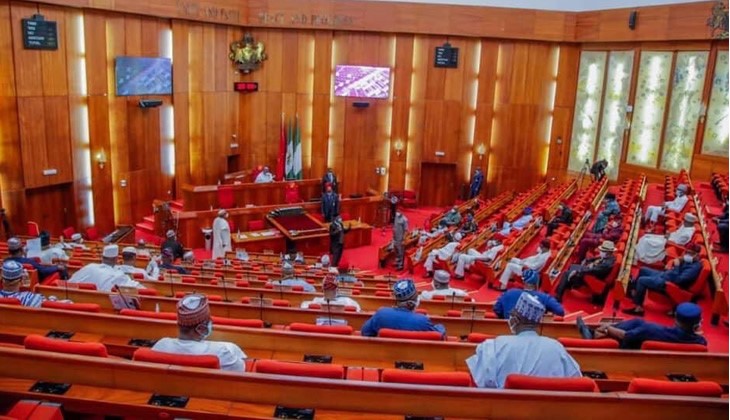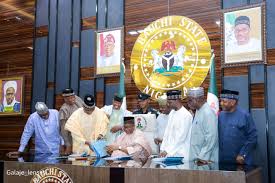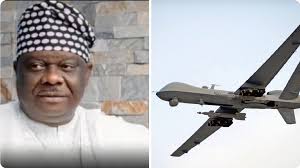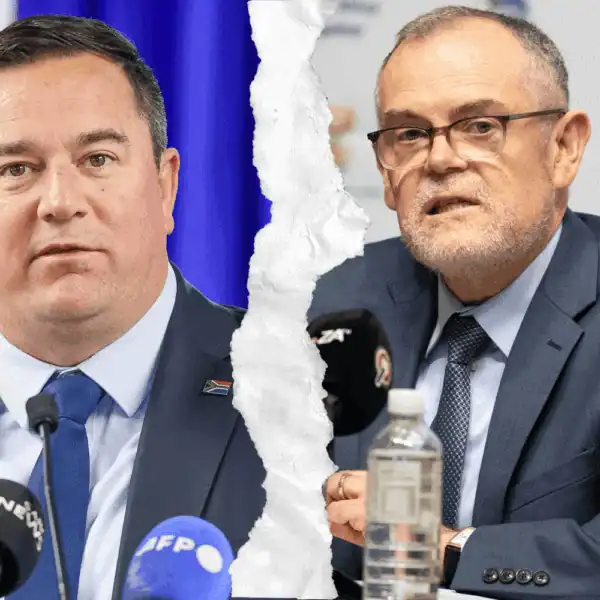
Senate Committee on Finance and the Federal Ministry of Finance, alongside key fiscal agencies, have resolved to tighten coordination in the management of Nigeria’s fiscal policies and budget implementation to enhance transparency, accountability, and performance across ministries, departments, and agencies (MDAs).
The resolution followed a closed-door meeting between the committee, chaired by Senator Sani Musa, and top government officials, including Minister of Finance and Coordinating Minister of the Economy, Mr. Wale Edun, and Director-General of the Budget Office, Mr. Tanimu Yakubu.
Musa, while briefing journalists after the marathon session, said the interface focused on the performance of the 2024 and 2025 budgets, fiscal policy direction, and preparation of the Medium-Term Expenditure Framework (MTEF) for 2026–2029.
He said both arms of government agreed that while progress had been made, more effort was needed to ensure that budget implementation directly translated into improved living standards for Nigerians.
“We have had very long deliberations on fiscal policies and the economy, especially the budgets. We reviewed the implementation of the 2024 budget and examined the outlook for 2025,” Musa said.
He added, “We have also asked the Finance Ministry to urgently present the Medium-Term Fiscal Framework for 2026 to 2029. The Minister has briefed us, and we all agree that progress is being made, but there’s room for more improvement.”
He said the committee received reports from the accountant-general and the budget office detailing the level of budget releases, signed warrants, and the extent to which MDAs had commenced capital projects under the 2025 authority to incur expenditure.
The lawmaker confirmed that the senate finance committee had demanded a documented performance report on the 2024 budget before further discussions on future fiscal projections.
“We all agreed that before we begin work on the next MTEF, we must have comprehensive documentation on how the 2024 budget performed, including capital releases and implementation levels,” he explained.
Musa said, “The Honourable Minister of Finance has assured us that he will provide that report, and we have agreed to reconvene on October 23 after studying the documents thoroughly.”
He emphasized that the legislature and the executive were working in harmony to ensure fiscal discipline and effective budget performance that would ultimately improve citizens’ welfare.
“If the budget works very well, the economy will work well, and there will be food on the tables of Nigerians,” he said, expressing optimism that ongoing reforms would yield tangible results.
In his remarks, Edun said Nigeria’s economy was undergoing structural adjustments to correct distortions and stabilise key indicators.
He disclosed that inflation had started to ease while growth momentum was picking up across productive sectors.
“At this point in time, we all agree that we have an economy where major distortions are being corrected, an economy that is stabilising, with inflation beginning to decline and growth accelerating across sectors,” he said.
According to Edun, the economy recorded 4.23 per cent growth in the second quarter of 2025, driven by a strong rebound in the industrial sector.
He explained, “When you disaggregate that growth, you’ll see that the job-creating industrial sector grew by over seven per cent, specifically 7.45 per cent. That is significant because it doubles the population growth rate and helps generate income to lift people out of poverty.”
The minister reaffirmed the government’s commitment to sustaining broad-based growth across all 46 sectors of the economy as part of the broader objective of reducing poverty and expanding job opportunities.
On budget implementation, Edun said both the 2024 and 2025 budgets had recorded encouraging levels of performance, particularly in capital expenditure, which would continue to run until the end of the fiscal year.
He stressed the need to end the “culture of budget overruns and repeated extensions of capital implementation,” stating that fiscal discipline and timely execution were now top government priorities.
Speaking in a similar vein, Director-General of the Budget Office, Mr. Tanimu Yakubu, acknowledged that several key assumptions underpinning the 2024 and 2025 budgets did not materialise as projected, largely due to global economic headwinds and domestic production challenges.
Yakubu explained that oil revenue projections fell short by between $10 and $15 per barrel, as crude prices fluctuated below the benchmark of $75 per barrel.
“Inflation also rose beyond projections, affecting borrowing costs and debt service performance, which significantly exceeded targets,” he said.
He further disclosed that the fiscal implications of the Petroleum Industry Act (PIA) 2022 had compounded the government’s fiscal pressures.
Yakubu said, “Under the Act, 30 per cent of gross oil revenue and 30 per cent of oil and gas profits are retained for upstream operations, while the federal government also bears the NNPC’s operating costs.
“This has reduced the Federation Account allocation by nearly 70 per cent of what used to accrue.”
He also lamented that crude oil output had been consistently below projections in the Medium-Term Expenditure Framework approved by the National Assembly, further straining fiscal performance.
Despite the challenges, Yakubu expressed confidence that with ongoing reforms in revenue mobilisation, expenditure management, and debt sustainability, the government would realign its fiscal strategies to achieve stronger budget outcomes in 2025 and beyond.
The senate finance committee is expected to resume its engagement with the finance ministry and related agencies on October 23, when detailed performance reports on the 2024 budget are to be presented and reviewed.
Sunday Aborisade



